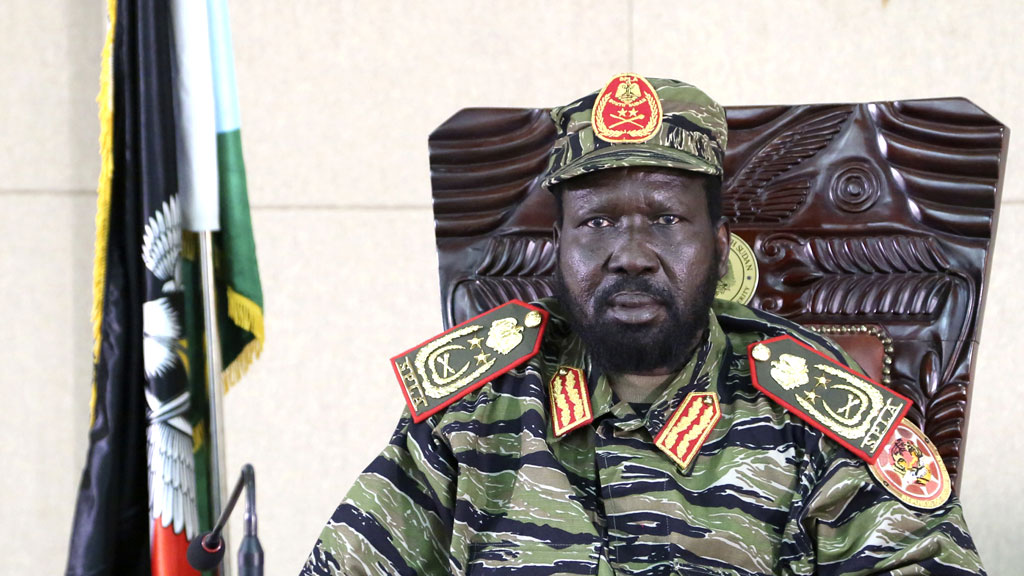Curfew in South Sudan after government defeats ‘coup’
The president of South Sudan declares a curfew and blames troops loyal to his sacked deputy for the violence overnight in the capital of Juba.

Gunfire and explosions could still be heard in Juba on Monday morning after the fighting erupted overnight.
President Salva Kiir blamed soldiers loyal to Riek Machar, who was dismissed as vice-president in July, for starting the fighting, and said they had attacked his party’s conference. The two men are from rival ethnic groups which have clashed in the past.
The president appeared at a press conference on Monday wearing a combat uniform, rather than civilian clothes, and announced a curfew in Juba from 6pm to 6am, effective from Monday night. He said that the fighting had broken out after shots were fired in the air near to a conference that was being held by the ruling SPLA party.
“This was followed later by an attack at the SPLA headquarters near Juba University by a group of soldiers allied to the former vice-president Dr Riek Machar and his group. These attacks continued until this morning,” President Kiir said. “However, I would like to inform you, at the outset, that your government is in full control of the security situation in Juba.”
Witnesses said that the violent clashes were concentrated at two military barracks: the main Bilpam barracks north of the airport, and at Jebel barracks south of Juba, where the presidential guard is based.
Africa’s newest nation
The UN envoy for South Sudan has appealed for calm in Africa’s newest nation, which declared independence from Sudan in 2011.
The government has struggled to establish itself since then, and has faced mounting criticism over its failure to establish public services. The former vice-president, Riek Machar, was sacked by the president in the face of the criticism, but Mr Machar has said he will run for the top job in the future.
Jok Madut Jok, chairman of South Sudan’s Sudd Institute think tank, agreed with the president’s statement that troops loyal to Mr Machar were to blame for starting attack.
“Riek Machar is not new to this kind of militaristic avenue to power,” he told Reuters by telephone from Juba.